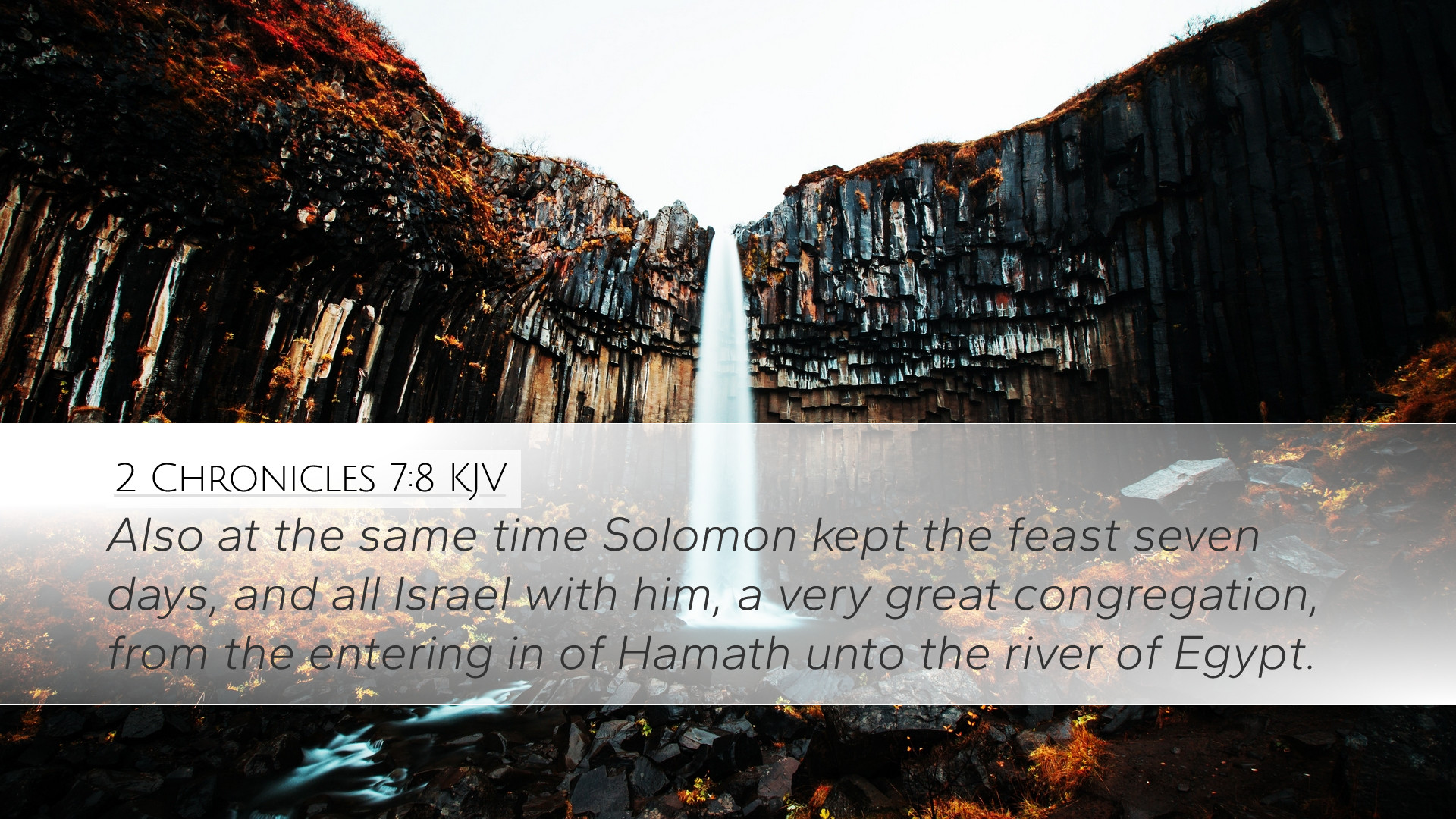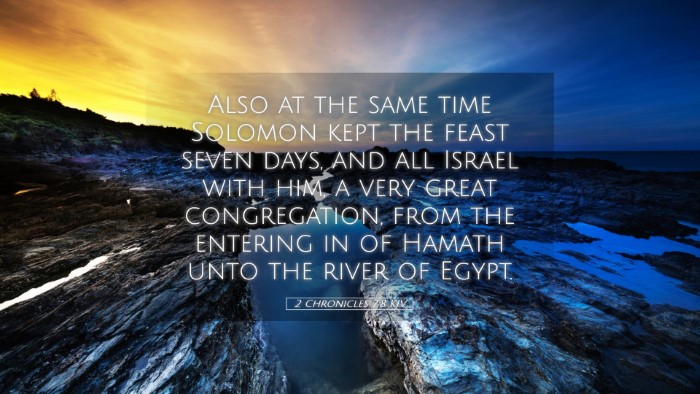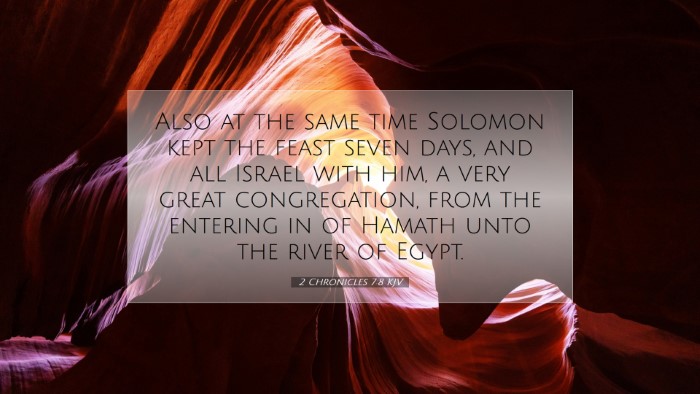Commentary on 2 Chronicles 7:8
Verse: "At that time Solomon held the feast seven days: and all Israel with him, a great congregation, from the entering in of Hamath unto the river of Egypt." (2 Chronicles 7:8)
Introduction
This verse encapsulates a significant event in the history of Israel during the reign of King Solomon. It depicts the atmosphere of joy and dedication following the completion of the temple, emphasizing the unity of the people and their collective worship. The intent of this commentary is to draw insights from several esteemed public domain theologians including Matthew Henry, Albert Barnes, and Adam Clarke.
Contextual Overview
The event described in this verse occurs after Solomon's prayer of dedication and the subsequent fire from heaven consuming the sacrifices. This moment signifies God's acceptance of Solomon’s temple and His presence among His people. The feast mentioned was an occasion for celebration, worship, and communal bonding.
Insights from Matthew Henry
Matthew Henry's commentary highlights the significance of Solomon's actions during this feast. He notes:
- Joyful Dedication: The week-long feast represents a spirit of joy in dedicating the temple. Solomon, as the ruler, understood the importance of this event.
- Unity of Israel: The phrase "all Israel with him" indicates the collective participation of the nation, reminding us of the strength found in corporate worship.
- Geographical Extent: Henry emphasizes the gathering from "the entering in of Hamath unto the river of Egypt," signifying that the joy of the temple’s dedication transcended regional boundaries, evoking a sense of national pride and divine favor.
Insights from Albert Barnes
Albert Barnes provides a thorough analysis of the cultural and spiritual implications surrounding this verse:
- Historical Context: Barnes correlates this feast with the ancient Jewish tradition of pilgrimage festivals, suggesting that this gathering was akin to the Passover and Feast of Tabernacles, reinforcing Israel’s identity.
- Divine Approval: He notes that the time of rejoicing came after God's manifestation of approval through fire, indicating that true worship must always be accompanied by acknowledgment of God’s presence.
- Duration of the Feast: The seven-day feast is reflective of the completion and perfection as understood in biblical symbolism, suggesting that the act of worship is to be whole and complete.
Insights from Adam Clarke
Adam Clarke offers a unique perspective on the emotional and spiritual significance of this verse:
- National Celebration: Clarke expounds upon the idea that this was not merely a religious observance, but a national celebration, indicating that the temple was a unifying factor for all the tribes of Israel.
- Symbolism of the Number Seven: He interprets the seven days of festivities as a symbol of God's covenantal relationship with Israel, emphasizing the fullness of joy found in the presence of the Lord.
- A Call to Future Generations: Clarke concludes that this gathering acts as a prototype for future celebrations of the people of God, emphasizing the necessity of joyful remembrance of God’s faithfulness.
Theological Implications
The gathering at the dedication of the temple, as represented in 2 Chronicles 7:8, brings forth several theological implications:
- Covenant Relationship: The event serves as a reminder of the covenant relationship between God and His people, calling them to remember His deeds and faithfulness.
- Worship as a Community: The united effort in worship illustrates the significance of community within the body of believers, fostering togetherness in spiritual pursuits.
- God’s Presence: The ultimate goal of the feast was to celebrate God's presence among His people, reinforcing the notion that worship is an invitation for divine integration into communal life.
Applications for Today
The reflections from this verse are pertinent for contemporary believers, pastors, and theologians:
- Importance of Gathering: The principle of communal worship is vital; believers are encouraged to gather regularly to celebrate God’s work in their lives.
- Gratitude and Joy: Just as the Israelites rejoiced, today’s believers are called to cultivate a heart of gratitude and joy, celebrating the provisions and presence of God in their community.
- Longing for God’s Presence: The celebration prompts reflection on the necessity and longing for God in our lives, echoing the timeless truth that He desires closeness with His people.


